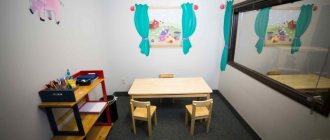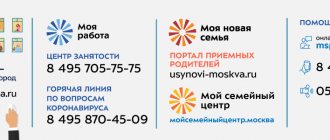Due to the increasing number of cases of speech problems in children and adults, the profession of speech therapist is becoming increasingly popular. Despite the fact that specialized universities graduate defectologists every year, the market is not oversaturated with personnel. A certified employee can easily find a place to start his career, and experienced professionals have no shortage of interesting offers. Depending on the chosen direction, a speech correction specialist works with children or adults. He can get a job in a commercial or budgetary institution, or open a private practice.
Who is a speech therapist
Expert opinion
Ekaterina Kolokolova
Career guidance. Certified specialist in the problems of children's involvement in learning.
A speech therapist (defectologist) is a specialist in speech disorders and methods of their correction. This is a highly qualified professional whose work is aimed at identifying the patient’s problem, establishing its cause, and eliminating negative manifestations.
Such an employee knows techniques, the use of which helps people speak correctly. It can get rid of negative manifestations or smooth them out as much as possible. An employee of this profile is able to help with disorders of both physiological and mental nature.
Despite the description, this profession is not directly related to medicine, so you do not need to graduate from a medical university to obtain it. The main emphasis in training employees is on teaching them psychological methods and techniques. Often, the effectiveness of a speech therapist’s work primarily depends on the specialist’s ability to find an approach to his client.
Speech therapist is a relevant profession in the modern world. The goal of the activity is to prevent and correct speech problems.
What to take for admission to speech therapy after 11th grade
To enter the university, you must pass the Unified State Exam. The list of subjects depends on the specific educational institution and the profile chosen by the applicant. Often universities require you to take three or four exams.
Russian language, as a compulsory subject, must be taken for admission to all universities. Mathematics is less common. But some universities require you to take it too. It is important to take into account that for admission you need specialized mathematics.
Elective subjects include biology or social studies. These subjects can be together, but sometimes only one is present, which allows the student to focus on a certain narrow area (scientific or humanitarian).
Also, some universities conduct their own entrance tests (in addition to the requirement to pass the Unified State Exam in certain subjects). Most often this is an interview where the committee asks professional and personal questions. The applicant is not required to have in-depth knowledge, but he must have a basic understanding of the profession, know the basic terms and concepts.
Examples of questions:
- Why did you decide to enroll in this specialty?
- Which famous speech therapists do you know?
- Where can a specialist work?
- What skills and qualities should he have?
- What is “speech development”?
What personal qualities should a speech therapist have?
Work in this specialty is suitable for calm and reasonable people who are committed to helping those who need it. A representative of the profession needs patience, endurance and the ability to establish contact with people. Such employees must be tolerant and open, tactful, attentive, and friendly.
Speech therapists in most cases work with patients suffering from self-doubt and complexes. They can be closed, aloof and even aggressive. A professional is obliged to show concern for their situation, but at the same time one cannot be too soft, one must be persistent. Another important quality for an employee is stress resistance, which is manifested in the ability to maintain a good mood in any circumstances.
Equipment
How to become a children's speech therapist? You need to purchase the necessary teaching aids for speech correction and visual material. These include various pictures, toys, educational games, and a cut-out alphabet. In addition, the office should have:
- large wall mirror for studying;
- small mirror;
- sound probes;
- stationery.
Also, the office should have furniture that is suitable for the child’s age, so it is best to choose tables and chairs whose height is adjustable. All methodological and didactic aids and stationery should be stored in the closet. And there should definitely be antibacterial wipes, and best of all, a sink so you can wash your hands. And, of course, the office should be clean and tidy.
Profession speech therapist: pros and cons
There are many positive aspects to working as a speech therapist:
- the opportunity to help people - the ability to speak correctly frees people from complexes and self-doubt, for which they thank their teachers;
- demand - manifested in the popularity of services, the opportunity to get a job in a hospital, clinic, development center, rehabilitation department, etc.;
- respect for representatives of the profession - speech therapists are respected no less than doctors, and you need to study not 8 years, but an average of 4 years (this can even be done in absentia or remotely);
- different options for earning money - professionals are able to work in budget and paid institutions, as well as conduct private practice;
- The value of experience is one of those areas in which experience is more important than “fresh knowledge,” which allows you to work calmly until retirement and even after it.
The profession is not without its drawbacks. Negative aspects include low salaries for newcomers, as well as the need to prove yourself in order to get a good place. It is worth preparing in advance for serious psycho-emotional stress. It may also be difficult to establish contact with patients. In some workplaces, speech therapists are forced to maintain large volumes of documentation, which is not always adequately paid.
What are the differences between a children's speech therapist and an aphasiologist and a defectologist?
These specialists are often confused, because they somehow work with speech production. In addition, they all deal with psychology to one degree or another.
Here is a comparison table:
| Speech therapist at school or kindergarten | |
| Psychologist | General: work with people with speech therapy disorders. Differences: the task of a speech therapist is preventive and corrective assistance, a psychologist’s task is to relieve anxiety and provide moral support. |
| Aphasiologist | General: specialize in speech problems. Differences: a speech therapist-aphasiologist deals with the elimination of speech disorders acquired as a result of diseases (stroke, tumors). Other speech therapists tend to work on birth defects. |
| defectologist | General: both specialists study special psychology and pedagogy, speech therapy, psychology, neurology, psychiatry), and are engaged in the correction of sound pronunciation. Differences: a general speech therapist works with everyone, a defectologist works with children with physical and mental developmental disorders. Accordingly, a speech therapist teaches the ability to speak and communicate, and a defectologist teaches more about the content of communication and adaptation to the environment. |
Both a children's speech therapist, an aphasiologist, and a defectologist must have a higher pedagogical education. As a rule, medical institutions employ defectologists.
Famous representatives of the profession
Levina Roza Evgenievna
Soviet teacher, psychologist
The biggest achievement is the construction of the concept of general speech underdevelopment. She developed a classification of general speech underdevelopment and revealed ways to overcome it.
More details
Lyapidevsky Sergey Semenovich
Russian scientist in the field of speech therapy.
His research on the study and correction of people who stutter is of great importance. He participated in the creation of natural scientific foundations for the education and training of children with speech disorders, studied issues of differential diagnosis, child psychopathology and neuropathology.
More details
How to get a speech therapist education remotely
You can become a speech therapist by correspondence using remote technologies. It is simple, convenient and does not require interruption of work. Today, this form of training is available in many universities and continuing education institutions.
The Academy implements several distance learning programs in speech therapy.
The professional retraining program “Speech Therapy” is intended for teachers of preschool and school institutions.
Duration of training – 260 / 510 academic hours (from 2 to 4 months).
Main topics of study
- Regulatory and legal support for the education of persons with disabilities;
- Medical and biological foundations of defectology;
- Organization of speech therapy work;
- Fundamentals of special pedagogy and psychology;
- Types of speech disorders and methods of speech therapy.
Training according to the program will allow you to effectively manage the process of development of the individuality and personality of a child who needs specialized individual methods of education and training.
The advanced training program “Speech Therapy” is intended for practicing specialists who want to expand and update their knowledge.
Duration of study – 180 academic hours. (1 month).
The programs comply with the requirements of Federal Law dated December 29, 2012 N 273-FZ “On Education in the Russian Federation” and Order of the Ministry of Labor of Russia dated October 18, 2013 N 544n (as amended on August 5, 2016) “On approval of the professional standard “Teacher (pedagogical activities in the field of preschool, primary general, basic general, secondary general education) (educator, teacher).”
Training to become a defectologist
To work in this field, you must have a specialized higher education. To undergo training, you can enroll in a university or, if you have a teaching diploma, complete retraining courses for specialists. As practice shows, employers trust applicants with higher education in their field more. Certificates and diploma courses are welcome as an addition.
Example of a job description
Example instructions (page 2)
Example instructions (page 3)
Example instructions (page 4)
Example instructions (page 5)
Example instructions (page 6)
Example instructions (page 7)
What subjects are studied
Training in Speech Therapy involves intensive preparation for interaction with patients. For this reason, the focus is on subjects with an emphasis on psychology. An employee of this profile must understand people, be able to establish contact with them and win them over.
Regardless of plans for the future, speech therapists must master the basics of psychology of adults and children. Additionally, basic principles of teacher education are given, and courses are taken in anatomy and the medical causes of speech disorders.
Courses
Taking courses to become a speech therapist is important for people with a pedagogical education. In this case, they can attend a retraining program for specialists lasting 1 thousand hours. After this, you need to pass a series of tests and exams to get permission to work with patients. In the absence of a pedagogical base, completing a retraining program does not give the right to work in the profile.
Universities
To enroll in the field of “Speech Therapy” or “Defectology” at one of the universities, you usually do not need to take exams. It is enough to have high Unified State Exam scores in Russian language and biology. Additional disciplines include social studies, literature or mathematics. Some universities still sometimes require an additional entrance test, which allows you to get into a budget place.
In Moscow, the leaders in training in this profile are considered to be MPGU, the Institute of Social Pedagogy and Psychology named after. Raoul Wallenberg, Herzen State Pedagogical University. A high level of training is guaranteed at the Pushkin State University in St. Petersburg.
You can obtain the profession of a speech therapist at almost any pedagogical university, on the basis of which the department of speech therapy or the faculty of defectology operates.
What subjects are studied
Speech therapy combines several aspects of personality. You have partially familiarized yourself with the characteristics necessary to master the profession in the block “What qualities are needed.” But the defectology department offers an extensive program to develop these skills in order to successfully master this profession.
Future speech therapists become familiar with the following disciplines:
- the basics of pedagogical education - because a speech therapist must be able to communicate with children;
- the basics of psychology, not only for children, but also for adults;
- anatomy and medicine.
A more detailed training program can be found on the website of a specific university. Some items may vary.
Where can I work?
Professionals with speech therapy education are accepted into kindergartens, schools, and clinics. They are also in demand in additional education centers for preschoolers, schoolchildren and adults. Having work experience will allow you to get a job in a rehabilitation center or organization to combat speech disorders. Speech therapists, whose classes have an obvious positive effect, easily gain a client base. This allows you to conduct consultations at the same time or even open your own private office.
Example resume
Sample resume (page 2)
Individual entrepreneur registration
How to become a speech therapist and conduct private lessons? It is better to open a small office after you have worked in an educational institution or a children's center. Because you will already be able to conduct classes with children with various speech disorders, you will have methods that, if you practice them, you will get good results. And most importantly, you will have a client base, because the effectiveness of a speech therapist’s classes is visible. And if you are a good specialist, then satisfied parents will recommend you to others.
What does it take to become a speech therapist and open a speech center? It is necessary to register it as an individual entrepreneur and select the desired taxation system. And you will also need to draw up an educational program in which you will study and obtain a license from the education department. In addition, you will need to obtain permission from the SES and fire inspection, provide a rental agreement for the premises or its purchase.
You must have a diploma, a speech therapy office passport (all teaching aids and visual materials are noted in it) and a health record. By registering an enterprise, you can work in a private speech therapy office.
How much do they get
Each speech therapist has his own approach to working with patients, which affects the effectiveness of the treatment they provide. This factor has a great influence on the level of earnings of a specialist. At the initial stage of his career, such an employee receives 20-30 thousand rubles.
As his professionalism grows, he can already choose his place of work. If in budgetary organizations defectologists are paid 35-45 thousand rubles, then in private companies their earnings reach 60-70 thousand rubles. Professionals running private practices earn from 80 thousand rubles if they have a client base and proper organization of work.
[salary]
Responsibilities of a specialist
Most believe that its task is to correct incorrect sound pronunciation. But a speech therapist has many responsibilities that involve more than just production and automation of sounds. What are his responsibilities:
- Diagnosis of speech development of a child or adult.
- Drawing up a plan of correctional work taking into account the individual characteristics of the child or adult.
- Work on sound pronunciation.
- Work on coherent speech.
- Work on voice and diction.
- Teaching writing and reading skills (i.e., a specialist helps the child learn the basics of literacy).
- Work on the development of the motor sphere.
- Parent consultation.
A good speech therapist is a specialist who copes with his professional responsibilities. And for this he must have the necessary skills and abilities.
Who absolutely cannot do this job?
An irritable person, gloomy, self-righteous, a person prone to violence (including psychological violence) will not be able to work as a speech therapist.
You must be able to quickly respond to a constantly changing situation, adapt your methods to the child, and not the child to the methods. There are no universal methods and techniques, no master keys that fit all locks. We need flexibility.
You need artistry, you need playfulness. Although no one will give you an Oscar for this.
When you sit one-on-one with a student, you must be able to be “here and now” and put aside everything that is not related to this communication. If you are not ready to peer and listen closely to your students, nothing will work.
What symptoms should you consult a doctor for?
An unscheduled inspection is necessary in the following cases:
- at one and a half years old, the baby does not use individual words or syllables, does not form phrases, speech is monosyllabic and slurred;
- at two years, speech is slurred or the baby refuses to speak at all;
- at three years old, the child pronounces sounds too slowly or too quickly, stutters, confuses endings, cannot form a simple sentence, and his vocabulary contains less than 30 words;
- at four years old, a poor vocabulary, communication consists of short phrases and an abundance of mistakes;
- at seven years old, the child cannot or does not write/read well.
Absolutely all children under 3 years of age must undergo an examination and consultation with a defectologist. Why at this age? Until the age of 3, a child’s speech is formed and speech diagnoses are not given, since it is unknown how the child will speak later. At this time, the defectologist will determine the baby’s level of development, whether he is appropriate for his age, and check his emotional/physical/speech readiness. After 3 years, when many sounds have already been formed and are pronounced clearly, the defectologist can begin to correct them and “set” the desired sound.
If your child has one of the above symptoms, contact a neurologist. He will rule out serious pathologies of the nervous system, and then send you to an appointment with a speech pathologist for speech correction.
There are no age restrictions for defectological diagnostics. Timely treatment is the key to successful treatment, but the problem can be corrected even in advanced cases. A speech therapist will help improve or form a vocabulary, add syllables and phrases. In some cases, special massage, physiotherapy or other therapeutic methods will be needed.
What is bad about being a speech therapist?
This is working with children and their parents, which in itself is not bad, but difficult. It is difficult to find a common language with a child if he is already so overwhelmed that he is afraid to talk at all. It is difficult to call a child to order, especially if he does not understand speech well, if his memory is weak, his attention is unstable.
It is difficult to convey your recommendations to parents, who often do not understand the seriousness of the problem. Yes, they want the child to finally learn to speak. But first of all, they are concerned with those very “defects of fiction”, and not with speech as a whole. The more severe the violation, the more reluctant they are to complete homework.
Now I work at a school for children with severe and multiple developmental disabilities. Their speech difficulties are a consequence of motor and intellectual impairments. Many of our students have behavioral problems, so-called disorders of the emotional-volitional sphere. To win over such a child and set him up for work requires diabolical ingenuity and absolute dedication. Speech pathologist, speech therapist, psychologist, subject teachers - we all work in the same team.
It's difficult, but we like it.
The abundance of papers, plans and reports that have to be compiled for the delight of education bureaucrats is annoying. I will never learn to fill out a journal without making mistakes!!!
But what’s really bad is what’s happening in education now. I don’t know how long this misfortune will last, but many kindergartens and schools have lost their speech therapists and speech pathologists. And in many Russian cities there are none at all. If we talk cynically, I should be glad: the fewer speech therapists in kindergartens, the more private lessons there are for speech therapists.
But, as I already said, one speech therapist in the field is not a warrior. The more complex the problem, the more specialists need to be involved. What kind of future awaits a child if he speaks his native language like a foreigner? How will he find friends? How will he finish school? What profession will he master? This is a very serious problem.







